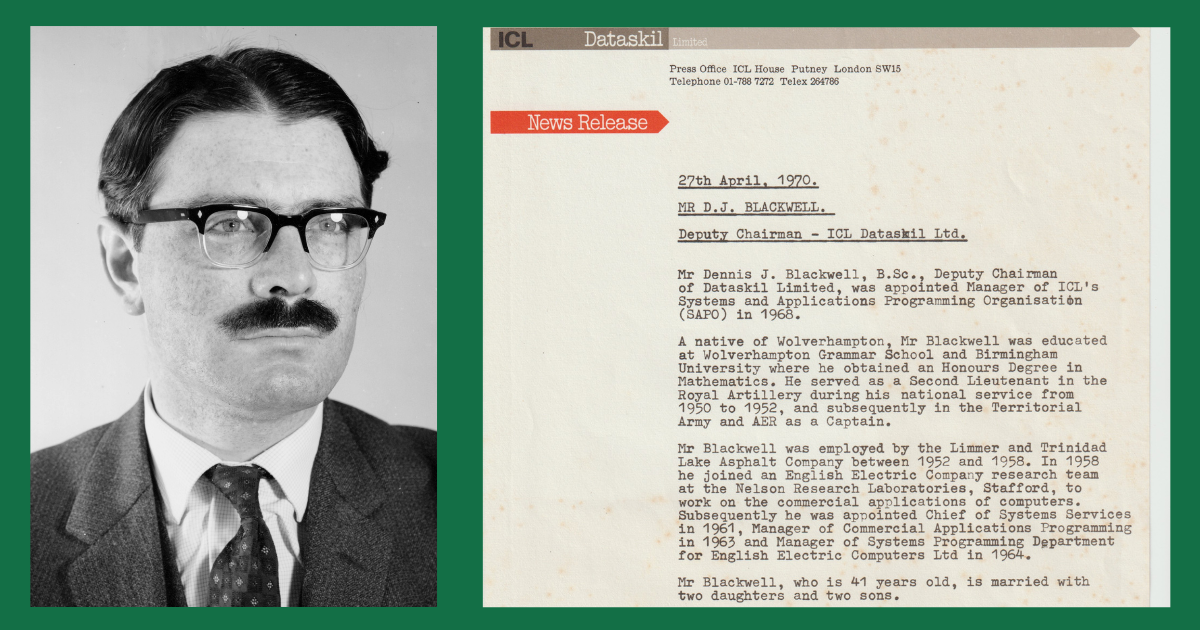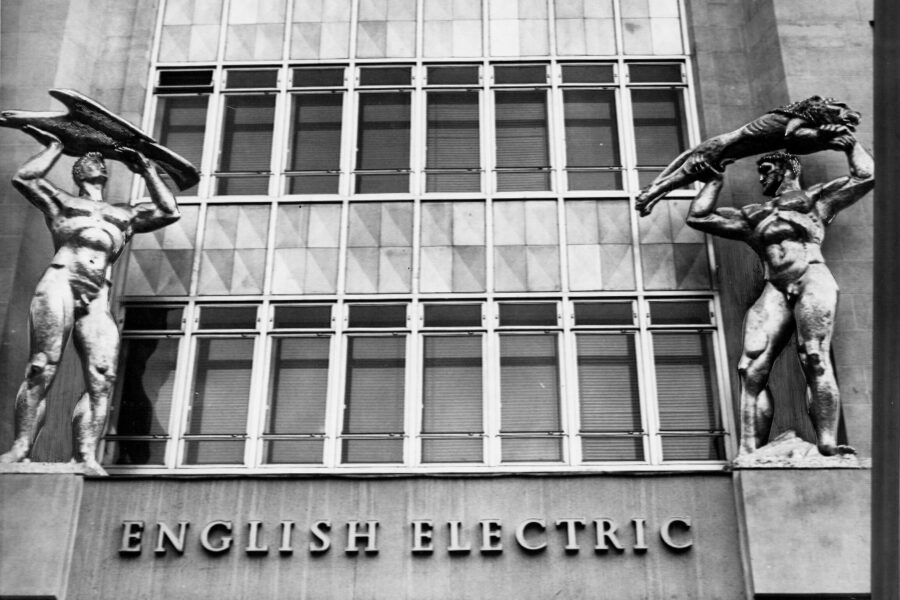
18 January 2024
Archives of IT (AIT) has received a Scoping Grant from The National Archives (TNA) partnership funding programme, Archives Revealed, to utilise the skills of a consultant to help look after the history of the Dennis Blackwell collection and make it available to interested researchers.
The Archives Revealed programme is a partnership between TNA, the Pilgrim Trust and the Wolfson Foundation which supports the cataloguing of archive collections and the Scoping Grants programme funds an expert report, to assess significant and unknown collections that may be of public value.
AIT’s aim is to scope the archive collection of Dennis Blackwell (1929-2016), which it was given custodianship of by his family in 2023.

A key figure in the British computer industry for more than 50 years, Blackwell joined English Electric in 1958 – one of the pioneer companies of the UK computing industry – ten years after the first electronic digital computer ran a stored program.
He was a senior manager for 25 years, participating in managing the Government policy of consolidation of firms that resulted in the formation of the national industry flag carrier, ICL, intended to compete with the US, global leader IBM. He was also involved with industry societies, professional bodies and regulators, including the BCS professional institution, WCIT City Livery Company and standards bodies BSI and the telecoms equipment approvals board.
“Archives of IT is thrilled to have been awarded a grant to help us scope the custody, conservation and digitisation of the archive of Dennis Blackwell,” said Stephanie Nield, AIT Archivist.
“Dennis contributed to some of the most important commercial initiatives of the period and his archive provides us with a better understanding of government policy, commercial competition, employment conditions, leading personalities and life in the IT industry in the late 20th and early 21st centuries.
“AIT is a volunteer led organisation and this project has the potential to impact significantly our future development and ability to save and share stories of IT working lives and the history of tech.”
Blackwell was interviewed by his daughter, Susan, in 2014 and AIT published this oral history interview on its website last year.
An AIT volunteer has performed an initial box list of the collection’s contents, which consists of 18 boxes, estimated at 4,000 pages.
The collection contains personal papers, including personal correspondence, speeches, company annual reports, publications, reports on various government and industry initiatives and discussions (such as creating a national computer capability and Minister Kenneth Baker’s IT82 project), event ephemera, and Dennis’s employment records including at ICL.

As well as digitising the records and making them available for research on our website, AIT would like to find a secure but accessible home for the physical collection.
“AIT does not have the facilities to provide a long-term home for the records and would like to go into partnership with another repository on this project, who could,” said Stephanie. “How this would work (and who with) will be one of the considerations of the scoping report.”
AIT exists to collect, save and share the history of the people behind the anglophone IT industry, mainly in but not restricted to the UK. It does this through recording and sharing on its website oral histories with key individuals and by providing historical context and teaching resources to complement them.
“The heritage we collect is unique,” said Tom Abram, AIT Director. “AIT differs from other IT heritage organisations in that it concentrates on the personal stories rather than the technology and objects themselves. Also, many of the companies we have testimonials of no longer exist. Therefore, Dennis Blackwell’s archive fits in with our collection policy due to the importance of his career and the historical significance and rarity thereof his personal papers.”




